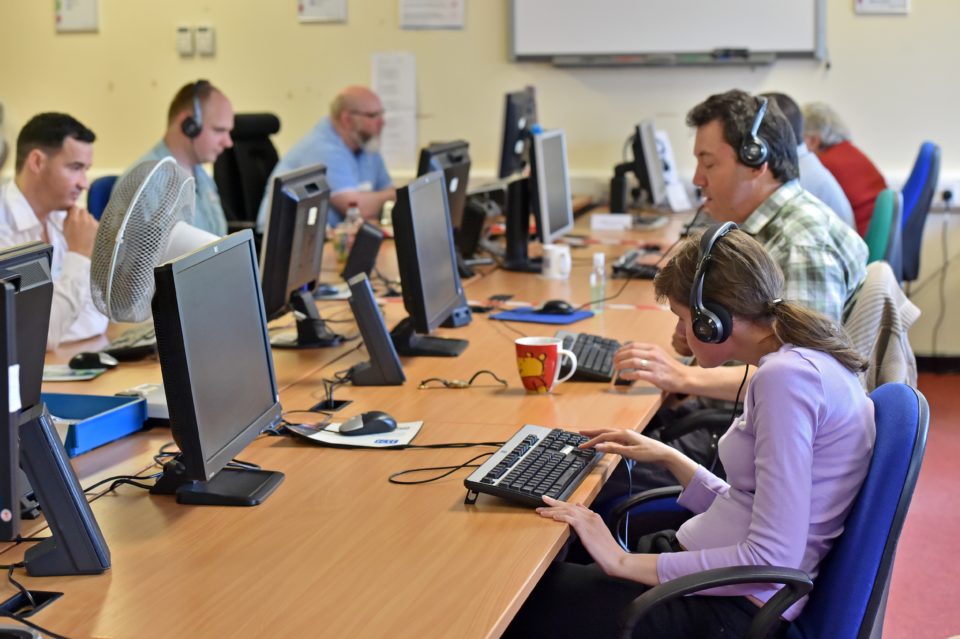‘Experience’ is a great word. A word that is defined in the Oxford Dictionary as the “knowledge and skill that you have gained through doing something for a period of time” e.g. “he had learned his lesson by painful experience”.
You could argue that ‘simulation’ will put you in good stead. So, for the explanation given for ‘experience,’ the pain of that person cannot be simulated. The movement could be simulated, and it could put the pain in a personal experience, but not theirs.
So, why is it important to have individuals with lived experience testing digital platforms?
To explain further, if I have lived experience with using a screen reader due to having a visual impairment but then tried to recreate solutions with technology for other disabilities, it would be ‘simulated’. This is because I have no physical experience, only knowledge about other disabilities, such as keyboard only (screen reader users only use keyboards, but in a different way).
Likewise, if I asked different members of the team for their input, such as colleagues who are Deaf, have low vision and struggle with insufficient colour contrasts, or with cognitive disabilities, they would all have quite different experiences and insights.
AI and limitations from people without lived experience with disabilities
Artificial intelligence (AI) is a great invention, but it has limitations. Similarly, limitations people in the industry have that check the accessibility of websites, who don’t have lived experience with a disability.
In my experience, AI and accessibility testers, without lived experience, use other facilities over screen reader software. These will see a link before hearing the way that a link has been labelled, which are often not written to be descriptive. Then their mind is made up because visually, the link looks like ‘that is all ok,’ where, in fact, it is not. A screen reader user needs to hear the text on the element that their cursor is on, nothing above, below, or either side. Yet the information that a sighted person has given is more information that is needed, which then may distract them from the error.
Because within the environment of disabilities, no matter how much you try, a person without that life experience will use what senses they have. Or, I will say this, cheat to further proceed in the process.
Completing (or not completing) application forms
Let me give you an example when trying to complete a long form, such as an application form:
Imagine that you spend hours putting in all the information that they require, along with typed answers and files that you had to photograph (or get someone to send the information) only to get to the end and you can’t submit it. This could be either due to the submit button being mouse dependent, or a CAPTCHA that can’t be completed by a screen reader user. Unless the non-lived experienced person is going through the process in the same way as the person with life experience (such as turning the screen off), then they will not experience the frustration and the inaccessibility of the process. There are so many more examples of inaccessible areas that assessors with different disabilities, or as we are saying today ‘lived experience’ can pinpoint.
Even with a slight variation, this could be problematic. I once was teaching students with limited sight on how to change the colour of fonts using a specific screen reader. When given a list of colours to scroll down, the text on the screen, for some reason, was displaying differently to the list selection that was being announced by the screen reader. They could not get there head around what was being presented, all they could do was just listen to the list of colours and when they heard the colour that they wanted, activate it, and the selected text would be changed to that colour. As I could not see, it did not affect me, as my life experience has taught me to just listen to what the screen reader is saying and not the visual representation that the students were experiencing.
Having your digital platform assessed by life-experienced people
To have your digital platform assessed by a person with lived experience will give you the knowledge and confidence that the website is being tested in the field by experts. Experts who must use assistive technology effectively in everyday life.
I know that here at Accessibility Services, the lived experience shines through time and time again. This gives a complete and comprehensive view of what is accessible and what needs to be changed to make digital platforms inclusive for everyone. In essence, nobody knows everything, so it’s important to let others help in areas where they can.







